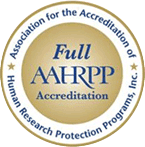Index
IRB Member Recruitment: Seeking Help from the UI Research Community
DSP Rebroadcast: UI Research Data Policy and American Heart Association Open Data Policy
Herky Hint: Acceptable Justifications for Waiver of Documentation of Consent
Gathering Identifiers for Research Subject Compensation
Give It to ‘Em Straight: Health Literacy in Clinical Research
Recap: Hot Topics Lecture from July 12, 2023
Medical Ethics Advisor Newsletter, June 2023
In the News
IRB Member Recruitment: Seeking Help from the UI Research Community
By Kelly O’Berry, BS, CIP
The UI Institutional Review Boards (IRBs) are expanding and diversifying our membership to better represent the perspectives of the broader population. We invite members of the UI research community to consider serving on the IRB and to help us spread the word to anyone outside the UI who might be interested to serving as an IRB member. This volunteer opportunity is great for people who care about protecting the rights, safety, and welfare of research participants.
The Human Subjects Office needs a dedicated group of people, with varied backgrounds and expertise, to review research applications submitted to the UI IRB. The UI has three separate IRBs that review biomedical research (IRB-01), social, behavioral and educational research (IRB-02), and research at the VA Health Care System (IRB-03). At any given time, UI and VA researchers are conducting over 4,400 research projects, so service on the IRB has a broad impact on campus. IRB members have a front row seat to hear about current research activities and the opportunity to learn about research ethics and the protection of research participants.
Board members play an essential role the UI Human Research Protection Program by reviewing research proposals and attending IRB meetings. Members make an annual commitment to attend one or two meetings per month.
IRB Member Testimonial
“I see my role as being an advocate for the potential subject, making sure that what they are asked to do is reasonable and that the explanation of the research is understandable. While I rely on my medical and scientific colleagues to determine if the project is ‘good science,’ I have never been made to feel that my opinion is any less valuable.”
Nancy Goldsmith, Non-Scientist IRB Member
IRB Membership
The Human Subjects Office seeks balanced IRBs that include UI faculty and staff and community members from Iowa City and the surrounding area. We strive for balance in terms of gender, race and ethnicity, age, background, expertise, and identity. IRB membership includes people with scientific training and experience as well as those with a non-scientific background.
Scientist Members (non-Physician)
The IRB seeks non-physician scientist members on the biomedical and social science boards. If you have a scientific degree or background and are interested in a volunteer opportunity, this may be a way to learn more about protecting human research subjects and contribute to the UI research enterprise.
Community and Non-Scientist Members
Community and non-scientist members play a crucial role by bringing fresh perspectives to the IRB review process. Community members and non-scientist members serve as a “voice” for potential subjects from various backgrounds, to look out for their interests during the IRB review process. UI retirees may qualify as community members two years post-retirement. Emeritus faculty are considered affiliated with the UI.
To qualify as an unaffiliated community member, the member and their immediate family may not be a current UI employee, enrolled student or volunteer or emeritus faculty. A community member may have a scientific/medical or non-scientific background, but they must not have an affiliation with the UI. We try to have a community member at every meeting.
The IRB must also include members with a non-scientific degree, background, or training. That can include clergy, public servants (police officers, fire fighters), artists, business professionals, research participants, and many others. The IRB must have a non-scientist member at every meeting.
No previous experience is necessary. We provide the initial training and ongoing education that you need to serve on the IRB.
IRB Member Testimonial
“As a community member my primary task has been to help determine that the information and consents given to participants in clinical trials are accurate and understandable to persons who do not have medical training. As a bonus, I have learned a great deal about human research and new medical advances.”
Dave Schuldt, Former IRB Community Member
Qualifications for IRB Membership
- Able to attend IRB meetings during business hours:
- IRB-01 meets on Monday and Thursday afternoons (2-4 pm)
- IRB-02 typically meets on Wednesday mornings (9-11 am)
- An interest in, and general aptitude for, learning about human subjects regulations and institutional policy
- Commit to review research proposals prior to IRB meetings
We hope you will consider serving on the IRB and/or share this article with other people you know who might be interested in this volunteer opportunity. Additional information is available on the Human Subjects Office web site. To apply or recommend a possible IRB member, contact Kelly O’Berry, Assistant Director for IRB Education & Outreach, 319-335-8477 or kelly-oberry@uiowa.edu
DSP Rebroadcast: UI Research Data Policy and American Heart Association Open Data Policy
American Heart Association Open Data Sharing Policy
For awards beginning in FY23-24, the American Heart Association (AHA) modified its Open Data Policy to align with the NIH’s new timeline for data sharing. This will be effective for proposals received after July 1, 2023. Existing awards are subject to the policy in place when the award agreement was signed.
The AHA requires certain applicants to include a data sharing plan with the proposal. Any factual data that is needed for independent verification of research results must be made freely and publicly available in an AHA-approved repository as soon as possible, and no later than the time of an associated publication or the end of the award period (an any no-cost extension), whichever comes first.
University of Iowa Research Data Policy
The University of Iowa and its researchers share an interest in assuring that research data are accurately and appropriately recorded, used, retained, and available for review and sharing. In addition, increased mobility among academic researchers has resulted in the need to provide policies governing continued access to research data.
The UI Division of Sponsored Program’s page on UI Research Data Policy can be found here.
Implementation Assistance
Depending on the type of help you need, the following UI offices can answer your questions regarding Data Management and Sharing Plans (DMSP). See a list of sponsor policies.
Division of Sponsored Programs
- Assists with proposal submission, budgeting, and data sharing and use agreements
- NIH Data Management and Sharing page on DSP website
UI Libraries Research Data Services
- Assists with drafting Data Management Plans (DMPs) according to funder requirements, selecting appropriate repositories, and sharing in Iowa Research Online and disciplinary repositories
- Assists with informed consent language and obtaining IRB approval for the data sharing plan
- Assists with various resources for computation and data storage
Information Security and Policy Office
- Assists with security of systems and identifying best practices
Herky Hint: Acceptable Justifications for Waiver of Documentation of Consent
By Rachel Kinker, MPA
Obtaining informed consent from subjects is an ethical obligation in research as well as a federal regulation, as described in 45 CFR 46.116(f)(3). However, some situations can make getting signed consent from subjects impracticable. When the correct circumstances are met, the UI IRB may grant a Waiver of Documentation of Consent (45 CFR 46.117). In this situation, subjects consent to participate but do not sign the consent document. Instead, subjects may verbally agree to participate, click an option to consent in an online survey form, or remain to complete research activities. An outline of this policy can be found in the Investigator’s Guide\IRB Standard Operating Procedures, Part II, Section 11.C.
A November 2020 IRB Connection article references the three circumstances in which the IRB may waive the requirement for the investigator to obtain a signed informed consent form:
- The only record linking the subject and the research would be the informed consent document and the principal risk would be the potential harm resulting from a breach of confidentiality.
- The research presents no more than minimal risk of harm to subjects and involves no procedures for which written consent is normally required outside of the research context.
- The subjects or legally authorized representatives are members of a distinct cultural group or community in which signing forms is not the norm, the research presents no more than minimal risk of harm to subjects, and there is an appropriate alternative mechanism to document that informed consent was obtained.
There are many reasons obtaining consent may be difficult: research teams may be understaffed, there may be minimal time, or participants may be unlikely to agree to participate. However, none of these reasons would meet the required circumstances for the IRB to grant a Waiver of Documentation of Consent.
In HawkIRB, the request for a waiver of documentation is found in Section VIID.16-18. In Section VII.D.16, you would select ‘Yes’ if you are requesting a waiver of documentation of consent.
With a Waiver of Documentation of Consent there is still a consent process for all subjects. The study is described, and potential subjects given the opportunity to ask questions and decide whether to participate. Prospective subjects must be presented with the information needed to make an informed decision about whether to participate in the research study.
Note: This is not the same as a Waiver of Consent (often used in retrospective data review, analysis of archived specimens, secondary data analysis or case report studies). A waiver of consent means that subjects are not informed that their records are being reviewed.
In Section VII.D.17, select either option A or B. For the IRB to grant a waiver of documentation of consent, the study must meet both parts of the requirement for either option A or option B.
Examples of Option A: web-based or anonymous paper surveys that do not collect sensitive information about subjects.
Examples of Option B: Subjects are undocumented immigrants or victims of domestic violence who might face considerable risk if there was a breach of confidentiality regarding their participation in the study AND the only record of their participation is a signature on the consent document. If a waiver of documentation is granted, the subjects’ name and/or contact information will not be collected or recorded as part of their participation in the study.
In Section VII.D.18, the rationale provided must be reasonable based on the type of research being done. Address how the study meets both parts of either option A or option B checked above.
In specific circumstances a waiver of informed consent may be appropriate. Criteria and guidance can be found in the May 2023 IRB Connection. For further information, contact us at irb@uiowa.edu or attend office hours to speak with an HSO staff member.
Gathering Identifiers for Research Subject Compensation
By Shane D. Soboroff, PhD
Subject compensation often requires collection and storage of individually identifiable information. Identifiers can include names, social security numbers, home addresses or email addresses. When compensating subjects, investigators should consider how personal identifiable information can be kept secure and confidential and whether such information might link an individual to data provided during research activities.
Research Subject Compensation: Information Required
Investigators compensate research subjects for the time and effort required to participate in research. The UI IRB Standard Operating Procedures and Researcher Guide Section 12.G provides guidelines for compensation types and amounts, including links to cash handling procedures for processing payments to subjects. Accounts Payable requires the following information for cash or cash equivalent payments to research subjects:
- Name
- U.S. Address
- Mailing Address
- Payment amount
- Citizenship status, with additional information required if a non-U.S. citizen
When payments to research subjects exceed $100.00 per payment, or more than $600 in a calendar year, a Substitute W-9 form must be signed by the subject at the first study visit and then delivered to Accounts Payable. This form and associated policy can be obtained from the Grant Accounting Office website. To complete this form, in addition to the above information participants must provide a valid social security number (SSN) or taxpayer identification number (TIN). Subjects wishing to withhold either their SSN or TIN must be given the option to waive compensation.
From an IRB perspective, reimbursements for travel and per diem expenses are considered compensation and should be described in the HawkIRB application. But the UI policy regarding Research Subject Compensation does not apply. Investigators are required to use the ProTrav system for reimbursements or non-gift card payments to research subjects.
Some participants are compensated with course credit. See the April IRB Connection Newsletter and UI IRB SOP and Researcher Guide, Section II, Part 7.K.i, for more information. If reporting subject names to instructors for the awarding of course credit, explain to the IRB how this process is described to participants during the informed consent process. Additionally, explain how students may opt out of sharing information about their participation if they so choose.
Protecting Privacy and Confidentiality
The Code of Federal Regulations (45 CFR 46.111) specifies the criteria for IRB approval for human subjects research. Among these criteria are requirements that subject privacy and confidentiality be protected. Privacy refers to the right of research subjects to be asked only for information required to answer an approved research question. Confidentiality refers to protections of identifiable information and subject data after it has been collected.
Investigators should collect only the information necessary for research purposes and required for compensation in line with UI policy and applicable state and federal laws. Note: University of Iowa policy has been clarified to state that compensation policies apply to ALL IRB-approved human subjects research, including research approved under an exemption category of review. The ONLY exception allowed is when the IRB has approved a waiver of documentation of consent to protect the identity of the research subject. See the UI IRB SOPs and Researcher Guide, Section II, Part 11.C, for more information about waivers of documentation of consent.
When compensation is approved as part of study procedures, HawkIRB forms must explain how subject information will be kept secure when sharing with UI offices or instructors who award course credit. Contact your departmental IT staff person for help with data security procedures that align with UI policies and IRB requirements. Additionally, you may contact research-computing@uiowa.edu for help from UI IT Research Services.
Give It to ‘Em Straight: Health Literacy in Clinical Research
Shane D. Soboroff, Ph.D.
Health literacy refers to a person’s ability to comprehend information they receive about their health and procedures or services they receive in healthcare settings. When conducting clinical studies, researchers can promote health literacy by providing clear explanations of any clinical procedures involved and how these may impact the health of the subject. Promoting health literacy facilitates voluntary informed consent decisions and upholds the principle of respect for persons. Resources for promoting health literacy are provided.
Regulatory Background
The Belmont Report identifies three principles that form the basis for federal regulations governing human subjects research: Respect for Persons, Beneficence, and Justice. Criteria based on these principles are used by Institutional Review Boards (IRBs) to determine whether research is approvable. Among these criteria is the requirement that subjects make a voluntary, informed decision to participate. The informed consent requirement holds that research teams must disclose any foreseeable risks posed by participation (as well as how these risks have been mitigated to the greatest extent possible) as well as likely or potential benefits to the subject or society.
To obtain voluntary consent, information must be presented to prospective subjects in language they can understand, and their comprehension must be assessed. Researchers are often aware that subjects may differ in their capacity to consent. However, researchers may overestimate how well individuals—otherwise capable of consenting—can understand basic information about their health or health-related risks.
Making Informed Decisions in Clinical Research Settings
Many factors can impact a person’s capacity to understand health information, including but not limited to level of education, native language, past trauma, or reduced cognitive function due to a medical condition. Researchers should assume that subjects vary in their capacity to understand complex health information and take steps to ensure subjects understand study procedures and how their health may be impacted by participating in research. Some best practices for promoting health literacy during research include:
- Using focus groups or pilot tests to develop study materials
- Using forms that are comprehensive but written in non-technical language
- Visual aids to communicate numbers and illustrate health information
- Schedule of study procedures accompanied by an informational session
- Interactive techniques (e.g. “teach back”) to assess subject comprehension
Health Literacy Resources
See this video for an overview of issues related to Health Literacy.
The following websites and resources can also aid investigators as they develop research protocols:
- MRCT Center of Brigham and Women’s Hospital and Harvard
- November 2020 IRB Connection
- National Institutes of Health National Library of Medicine
Recap: Hot Topics Lecture from July 12, 2023
By Kelly O’Berry, BS, CIP
A recording of the July 2023 Hot Topics lecture is now available in the IRB ICON Course for Researchers. Topics covered include: HawkIRB updates, new and revised HawkIRB Help Messages, assessment of the student PI training requirement, subject feedback survey (coming in Fall 2023), and onboarding/training new team members and researchers.
Medical Ethics Advisor Newsletter, June 2023
By Rachel Kinker, MPA
Medical Ethics Advisor (a publication of Relias, LLC) is a monthly newsletter with articles about human subjects research and medical ethics. Current and past issues of Medical Ethics Advisor and IRB Advisor are posted in the “IRB ICON Course for Researchers.” The portal to this ICON Course is on the Education and Training page of the Human Subjects Office website. This month we are spotlighting some articles about human subjects research from the June 2023 Medical Ethics Advisor Newsletter.Lack of Transparency on Informed Consent Documents Complicates Oncology Trials
There is a need for improved transparency within informed consent documents in Phase I oncology trials. The consent form should explain what the study targets in easily understood language. Unique risks that a trial might have should be highlighted in the consent document and explained. Often templates do not prompt the explanation of unique risks to participants. Researchers should strive to write consent forms that highlight the key issues involved in the decision to join a trial. Where to include risk information is also important; in a recent review of consent forms and patient perspectives, patients wanted to see risks highlighted in the risk and purpose sections and earlier in consent forms. To help patients make informed decisions, highlight risk information early in the form and reiterate this information throughout the document to increase participant awareness and comprehension of the unique risks associated with the trial. Researchers can also improve the informed consent process for oncology trials by comparing the risks and benefits of participation in the trail relative to standard treatments available outside the trial.
Emerging Ethical Issues to Consider When Conducted Community-Engaged Research
When conducting community engaged research, it is important ethically to identify a true representative of the community. The representative should also work with researchers to ensure that the results have the potential to benefit the community, and to be transparent regarding study aims and procedures through an appropriate release of study information. Key considerations for researchers regarding community partners: do they possibly have a conflict of interest? How will any monetary incentive to participate in the study be distributed? Is the incentive offered to individual patients or the whole community? How will investigators communicate the progress/results of the research to the community? If participants have concerns, should they contact the community representative or the research team?
Articles in the June 2023 Issue:
- The Joint Commission’s Updated Ethics Standards Spark Debate
- Ethics Work Affects Entire Hospital: Data Can Prove It
- Nurse Champion Role Helps Identify Ethics Issues
- Magnet Program Emphasizes Ethics in Patient Care
- Advance Care Planning Can Lower Odds of Aggressive End-of-Life Treatment
- Is Death Imminent? Conflicts Occur if Clinicians Do Not Make It Clear
- Ethical End-of-Life Care for Homeless Patients
- Ethical Misconduct Is Main Reason for Retracted Autism Studies
- Did Study End Early? There Is an Ethical Obligation to Participants
- Ethical Considerations When Using Gene-Editing Treatment for Sickle Cell Disease
- Ethical Problems When Using Artificial Intelligence Assistance During Surgery

In the News, July 2023
- Daily Multivitamin May Enhance Memory in Older Adults, NIH
- Key Improvements to Parkinson’s Disease Cell Therapies, Science Daily
- Brain Waves Synchronize When People Interact, Scientific American
- Positive Parenting Can Help Protect Against The Effects of Stress in Childhood and Adolesence, a new study shows, The Conversation










